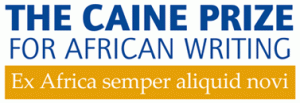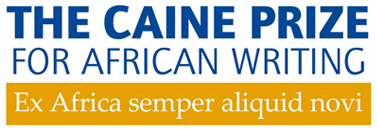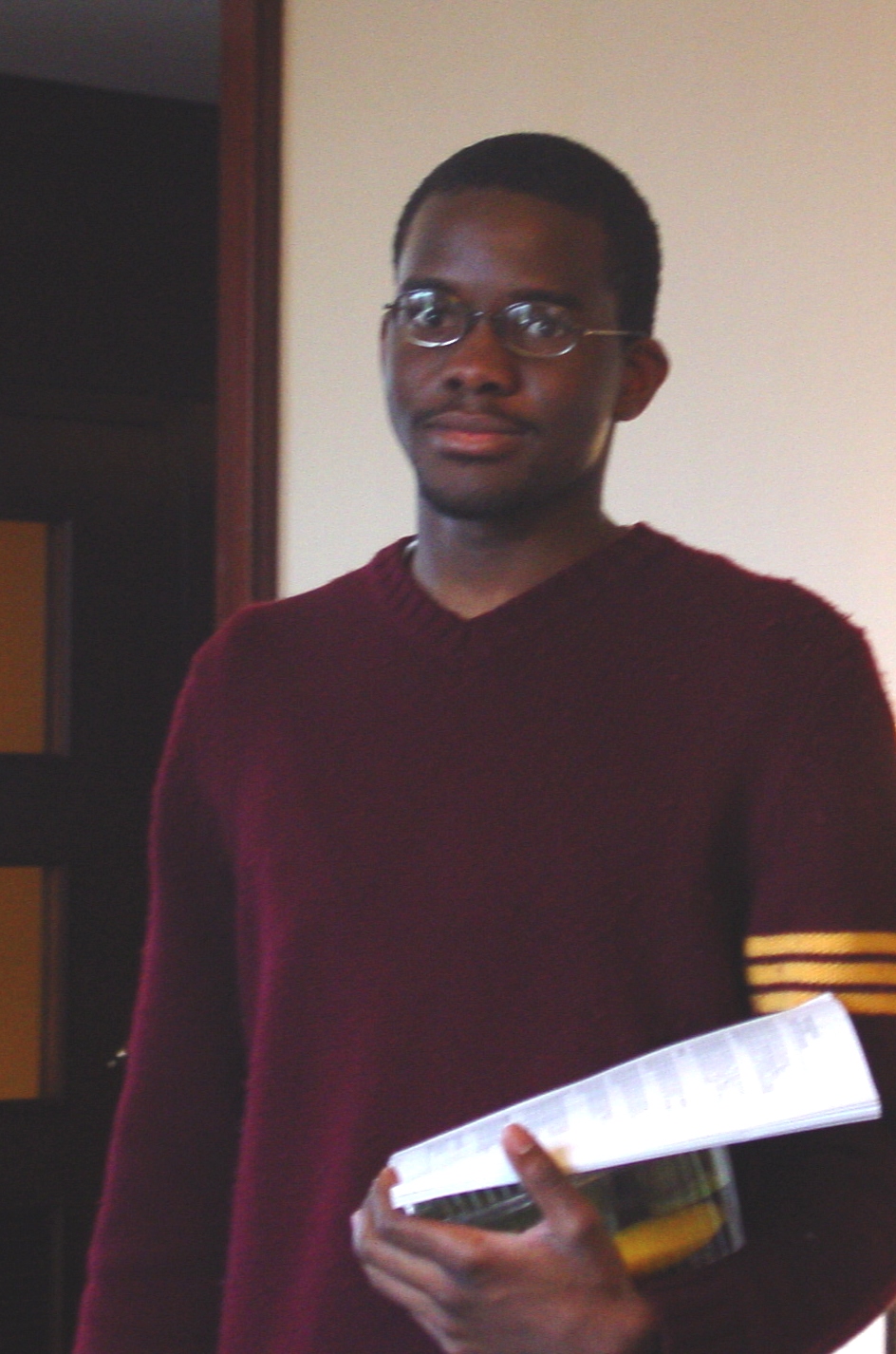What will the Caine Prize judges be looking for this year? Topicality? Politics? Dexterity? Profundity? Conflict? Emotion? Complexity? Looking at a set of shortlisted stories that share a similar line of focus might put a distant observer in a conundrum. I have spent the last six weeks reading and reviewing each of the five shortlisted stories on this site and elsewhere.
 Seeking the intersection of faith, disbelief and disability, two stories share an outlook on that turf: Abubakar Adam Ibrahim’s Whispering Trees and Tope Folarin’s Miracle. Looking at the complexities of immigration and the influence of America, one looks to Chinelo Okparanta’s America and Pede Hollist’s Foreign Aid. Imagining the problems of homelessness and violence, and the intervention of flora for human support, Elnathan John’s Bayan Layi and Abubakar Adam Ibrahim’s Whispering Trees compete for attention; while in Tope Folarin’s Miracle and Pede Hollist’s Foreign Aid, a clash of expectations exist between an American and the culture of his own long-lost home environment.
Seeking the intersection of faith, disbelief and disability, two stories share an outlook on that turf: Abubakar Adam Ibrahim’s Whispering Trees and Tope Folarin’s Miracle. Looking at the complexities of immigration and the influence of America, one looks to Chinelo Okparanta’s America and Pede Hollist’s Foreign Aid. Imagining the problems of homelessness and violence, and the intervention of flora for human support, Elnathan John’s Bayan Layi and Abubakar Adam Ibrahim’s Whispering Trees compete for attention; while in Tope Folarin’s Miracle and Pede Hollist’s Foreign Aid, a clash of expectations exist between an American and the culture of his own long-lost home environment.
If topicality and the relevance of the plot to real life events are the only preoccupation of the judges this year, and the ability of the story to elicit strong emotions, we should expect the winner to be Elnathan John’s Bayan Layi where the source of the scourge of child labour, street violence, and terrorism is explored through the eyes of a helpless urchin in Northern Nigeria. Reviews of the story have been mixed: from the scattered applause for its ability to tell an old story again, with passion, and without any hint of self-consciousness; to the outright dismissal of its craft as a lazy unimaginative aspiration to old templates. What makes the attention to Mr. John’s offering here more fascinating is the inevitable comparison (even by his own fans) to his other non-shortlisted work. To summarize one of the reactions on twitter: If Bayan Layi is the winner, then there’s something wrong somewhere. Here is an excerpt from one of the more nuanced (but ultimately unimpressed) reviews, on Gukira:
…I find myself resisting the story. Resisting the tingles, because I am unconvinced by how it deals with the protagonist. I get the “we are not terrible people,” but I wonder about the protagonist’s life. I wonder about the factual telling, the NGO-scriptedness of it, the absence of imagination. One could reasonably argue that the disposable are too consumed with need and care to dream or fantasize, and that all they can do is narrate event after event after event of loss and trauma and violence. What would it mean to imagine that the disposable have dreams and fantasies beyond the next encounter with drugs or violence? What would it mean to grant the potentiating of dreams and fantasies and even pleasures beyond numbing?
If this year’s choice tilts instead towards the current global opinion change on same-sex relationships, then America it is. America is also better written, judging it against the standard of past stories, though not with the heart-racing pace of Mr. John’s otherwise brilliant offering. Ms. Okparanta handles the plot concerning same-sex love in a balance with the pain and expectation of migration that also runs through the work. But in this year of Chimamanda Adichie’s Americanah and barely three years after Olufemi Terry’s Stickfighting Days, how much chance should these stories stand? Beside stirring up our emotions (and loins), how much do they really add to the dialogue? Do they tell us something new, push the limits of our knowledge or ignorance, and spark new conversations? If yes, for whom? If no, can we still celebrate and hold them as the exemplars of our storytelling in 2013? And for Bayan Layi, does it ever escape the shadows of Stickfighting Days against whose brilliant standard it will always be forever judged?
In Helon Habila’s recent intervention on the matter, we have the following:
The question to be asked then is whether this new writing is a fair representation of the existential realities of Africa, or if it is just a “Caine-prize aesthetic” that has emerged in a vacuum created by the judges and the publishers and agents over the years, and which has begun to perpetuate itself. Writing is an incestuous business: style feeds on style, especially if that particular style has proven itself capable of winning prizes and book deals and celebrity.
This generalization applies less to America as it does to Bayan Layi, and even much less when looking at Mr. Habila’s own winning story Love Poems in which we have incarceration, violence, and love, a moving story that depended on the still fresh scars of years of Nigeria’s brutal military regime. But that was 2001, just two years into the inauguration of the Prize. In 2013, Helon Habila, rightly so, would rather read stories that thrive not on the pain of a crumbling society but on the hopes for an imperfect one. He, of course, was channelling a critique made famous originally by writer Ikhide Ikheloa in 2011 (for a shortlist that produced NoViolet Bulawayo’s Hitting Budapest):
The Caine Prize has become a truly prestigious prize, which is a good thing. The problem now is that many writers are skewing their written perspectives to fit what they imagine will sell to the West and the judges of the Caine Prize. They are viewing Africa through a very narrow prism, all in a bid to win the Caine Prize…
This demonizes a legitimate response to social issues with stories from one’s own surrounding and is not fair to Elnathan John or other writers whose stories might not even have been written with the Caine Prize in mind, but one representative of real-life materials readily available to them. However, the Prize isn’t one for journalism, and the writer will always be judged on the quality of literary heft that his/her story brings to the table, and the consequences of the perception that this offering adds to the discussion. The Caine now represent, fair or not, a yearly slice of the stage of thought in the African literary craft, so discussions on issues like this will always follow each yearly announcement.
This leaves us with the other three stories.
I have been told of the metaphysical quality of Adam Ibrahim’s Whispering Trees, a complex layering of spirituality that transcends the human limits of disability. I did not see it so clearly portrayed or beautifully rendered in the work, and neither did Aaron Bady in his review in which he also said the following:
I didn’t like this story. But I also don’t believe in God, or spirits, or magic, and I dislike being preached to. I don’t like stories with morals for that reason; I feel like they’re cheap, and trite. When I read a story that begins by directly stating that its protagonist has just died—that he’s speaking to us, his readers, from “the other side of death”—and then it turns out that he has not, in fact, died—but only been blinded—I feel irritated. I feel as if some kind of contract has been dishonored. And I’m also a lot like Habila, in that what I want from a short story is that it be something other than episodic, that it avoid using deus ex machina to extricate characters from sticky situations, that it eschew didacticism, and that its characters be drawn from what I consider to be real life.
But, as Aaron also mused later, what if it ends up as the choice of this year’s Caine Prize judges? It would be nice to read the judges’ citation. (A tricky quality of creative production is its ability to appear in different lights to different people). On the other hand, an award to a story like this might insulate this year’s judges from the charge of promoting what Helon Habila referred to as the “poverty porn”. Will it?
In Pede Hollist’s Foreign Aid (reviewed here by Bady) and Tope Folarin’s Miracle is where I suspect that the judges might make their pick (and maybe in the wildcard of Chinelo Okparanta’s America), but I am not clairvoyant. Both treat their subjects with the dexterity of professionals, and the stories are readable both as entertainment and as deeper exploration of serious topics of cultural re-acquaintance and expectation (in the case of Foreign Aid) and religion and disability (as in the case of Miracle for which Aaron Bady of New Inquiry gave a textured review). Controversial enough to generate discussion about the limits of faith and the genuinely human problem of disability, Miracle pokes fun both at the world, the faithful, and at the disabled protagonist himself. It also continues earlier interactions with faith and disbelief in earlier works by African literary greats. And In Foreign Aid, we feel both pity, empathy, and disgust at the same time, for a protagonist that embodies both our idealism and our foibles. The choice of Tope Folarin, an African with an American passport, might also continue a conversation beyond the scope of his story itself, of what the Caine Prize for African Writing is not: a prize only for citizens living on the continent, telling only a certain kind of story.
This year’s shortlist has been called “weak” by a number of public and private commentators, not representative of this stage in the African literary craft. The fact that all the shortlisted stories came from the West African region has raised questions about the supposed vitality of the African storytelling space. Where are the Arab-African stories, for instance? The Prize was set up to reward the best written story every year – particularly the best-written stories entered for the award. Is the absence of more regional diversity a result of an absence of stories or an absence of storytellers, or even the absence of a zeal to compete for reward? Should this matter? Is story written from a corner of Cairo not equally as likely to win if representative of the truest fictional depiction of our reality as one written in Accra?
There is a silver lining to whatever happens next. As it has happened since 2000, five new writers have now been thrown into the public sphere, burdened with a mandate to excel, to continue the tradition of African storytelling in the writing form. One their heads are new feathers designed by Sir Michael Caine and the judges of this prize. Five new stories from around the continent have now also been added to our repertoire; five new ways to look at our ever-changing experience. So, perhaps as a consolation for the four non-winners this year, they will realize that they have already won something. On them now is a chance to prove the judges wrong. As it is with many awards of this nature, not winning is a kind of prize in itself: a challenge. Chika Unigwe, a 2003 shortlist, is the current winner of the Nigerian Prize for Literature, and a risen star in Nigerian literary sphere.
The winner of the 2013 Caine Prize will be announced on July 8th in Oxford, United Kingdom.
_____________
Kola Tubosun is the editor of the NTLitMag, and can be found on twitter as @baroka.


